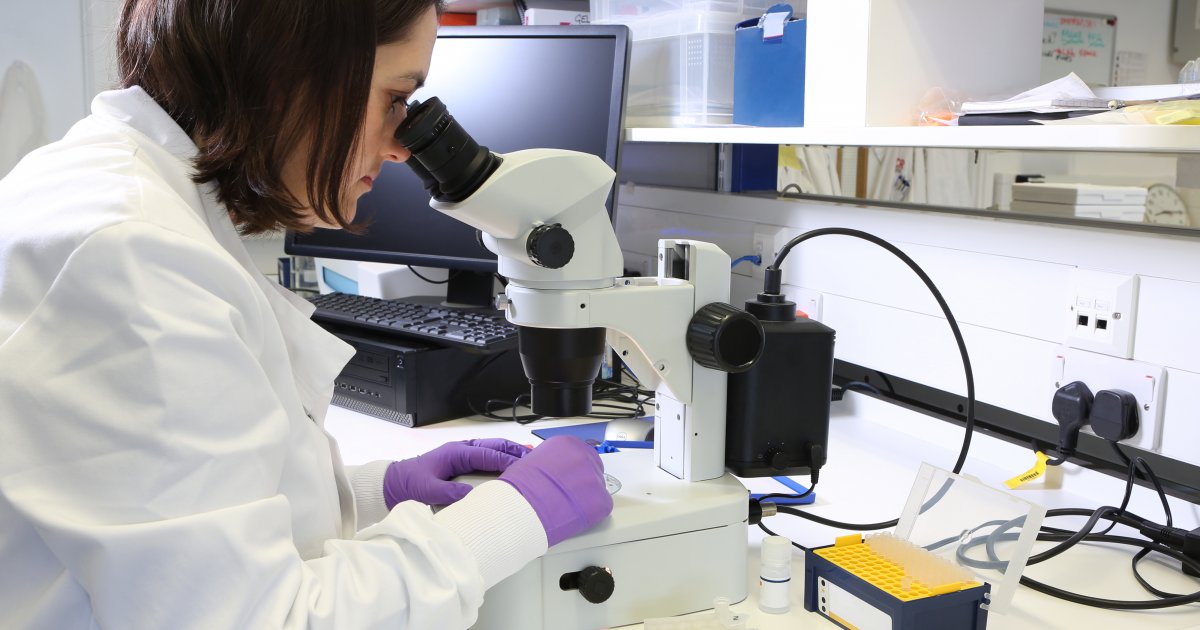By James Roland
When a family member has been diagnosed with pancreatic cancer, your primary focus is likely on the treatment and prognosis of your relative. But given the nature of this aggressive illness, it's important to consider your own cancer risk as well.
Read MoreYou may be considered high risk of developing pancreatic cancer if you carry pathogenic germline variants (PGVs) relevant to pancreatic cancer risk. A PGV is a change in a reproductive cell (sperm or egg) that becomes part of the DNA in the cells of the offspring. Germline variants are passed from parents to their children, and are associated with increased risks of several cancer types, including pancreatic, ovarian and breast cancers. Germline mutations in ATM, BRCA1, BRCA2, CKDN2A, PALB2, PRSS1, STK11, and TP53 are associated with increased risk of pancreatic cancer.
Everett found that the two primary reasons for high-risk relatives not participating in surveillance were lack of awareness (36%) and lack of interest (24%).
"It's probably going to take more public education, but also more education of primary care providers and gastroenterologists who may get questions from their patients about what they should be doing," she tells SurvivorNet. "As far as outreach to family members, once that first person from a high-risk family finds us, our hope is that we can help that person encourage and empower family members who qualify to get in to screening too. Anecdotally we know that some people really just don't know that screening is available. Learning about the options from their family members has been effective at getting relatives in the door."
Everett also acknowledges that there is "a lot of nihilism" among patients and physicians, who believe there really is nothing that can be done, or they simply don't want to confront the reality of pancreatic cancer.
"We need to do a better job not only in educating families and physicians about what is available, but also in supporting people in their decision making around genetic testing and screening," Everett says.
She adds that counseling pancreatic cancer patients and their families should take into consideration the emotional impact of the disease in addition to matters of screening, diagnosis and treatment. "People may be afraid, grieving, or even have a strong emotional reaction to coming in to a facility where a family member was treated for their cancer," she says. "All of these things can have an impact."
Pancreatic Cancer Surveillance
Unlike certain cancers that can be detected early with regular screenings, pancreatic cancer is more difficult to diagnose in its early stages. There is currently no established diagnostic tool for pancreatic cancer. Typically, pancreatic cancer is diagnosed after symptoms appear or if testing for an unrelated condition indicates cancer may present. And often that means the cancer is in an advanced stage.
One of the big challenges of pancreatic cancer is that 85 to 90 percent of patients are diagnosed with advanced disease that can't be surgically treated, and 5-year survival for this group is less than 10 percent, Everett explains. "For those diagnosed with smaller tumors that can be treated with surgery, survival statistics are dramatically better60 to 70 percent at five years for tumors under 1 centimeter," she says. "If we can do a better job of finding people who have increased risk and getting them into screening, it's an important step towards earlier detection and improved survival."
A genetic counselor can take you through the genetic testing process and explain the results. Having a relevant PGV doesn't necessarily mean you will develop pancreatic cancer, but it would indicate that you should make surveillance a high priority. Likewise, even if you don't have an inherited genetic mutation, simply having a close relative with pancreatic cancer should be enough to participate in a surveillance program.
"We know now from recent studies that at least 10 percent of patients diagnosed with pancreatic cancer carry a gene related to risk," Everett says. Guidelines from the National Comprehensive Cancer Network now recommend offering genetic testing to all patients diagnosed with pancreatic cancer, and also to anyone who has a close family member with pancreatic cancer. Testing can be done on a sample of blood or saliva, and can be coordinated by a genetic counselor. You can search for a genetic counselor near you at www.nsgc.org. The testing is often covered by insurance, or can be paid for out of pocket for about $250.
Pancreatic cancer surveillance may involve tests of your blood and/or pancreatic fluids. Surveillance also typically relies on annual imaging tests, such as magnetic resonance imaging (MRI) and a specialized upper endoscopy procedure called endoscopic ultrasound. Participating in surveillance may also help contribute to the growing body of data about risk and early detection that is helping doctors and patients around the world.
There is now a consortium of 37 centers across the US and in other countries called PRECEDE (Pancreatic Cancer Early Detection consortium). They are using a shared data platform to track patient data and fully collaborate on projects centering around early detection and eventually prevention. "There is a lot of momentum in research on early detection, and it's a great time to get involved in helping that research move forward," Everett says.
Learn more about SurvivorNet's rigorous medical review process.


